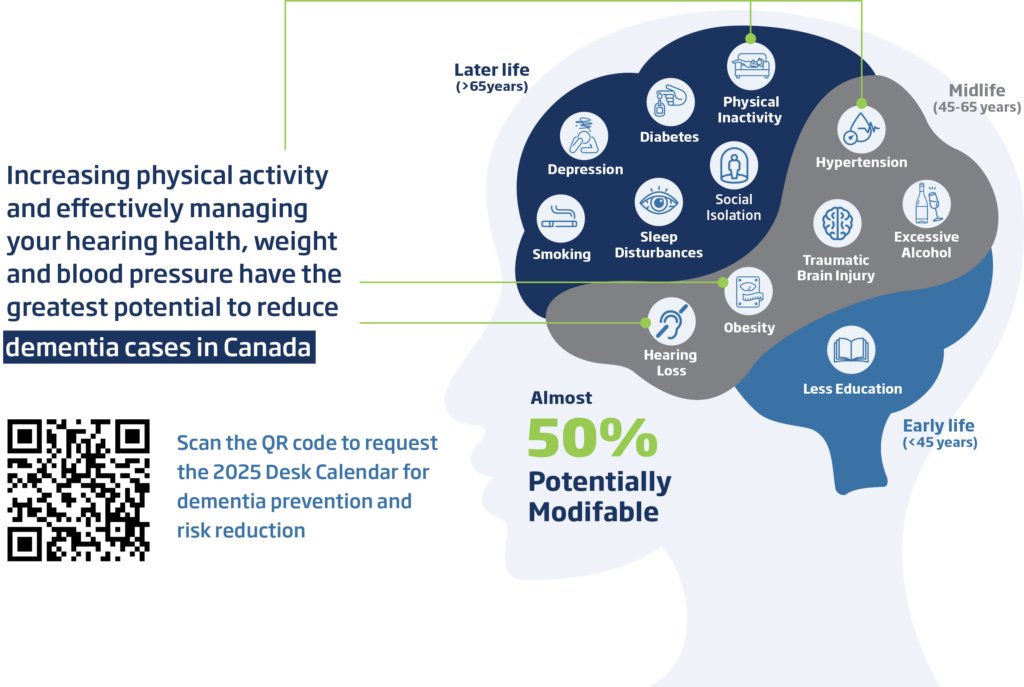Dementia is on the rise in Canada. According to the Alzheimer Society, the number of Canadians living with dementia is expected to triple from just over half a million people in 2020 to 1.7 million people by 2050.
A 2020 Lancet Commission report found that more than 40 per cent of dementia cases worldwide can be prevented by modifying 12 risk factors throughout the lifespan. However, the impact of modifiable risk factors in Canada was unknown until recently.
Researchers at Western University used CLSA data to examine modifiable risk factors that have the highest prevalence and strongest association with cognitive change in middle-aged and older adults in Canada. Specifically, they evaluated 12 modifiable risk factors to assess how the prevalence and potential population impact differed across sex and age groups and compared to other countries.
The research team found that up to half of the dementia cases in Canada are attributed to 12 modifiable risk factors, and that implementing strategies to increase physical activity and promote effective management of hearing health, obesity, and hypertension have the greatest potential to mitigate a large proportion of those dementia cases.
The research was published in The Journal of Prevention of Alzheimer’s Disease in June 2024.
The researchers also concluded that prevention potential is large for those aged 45 to 64 years, meaning that public health strategies should be implemented in midlife, not in later life.

Surim Son, a PhD candidate and first author of the study, received funding from the Canadian Consortium on Neurodegeneration in Aging to support knowledge translation of the findings. She is currently developing a desk calendar that will present the study results, highlighting 12 strategies to reduce dementia risk – one for each month.
“Dementia may be part of your genetic story, but it doesn’t have to be your destiny,” Son said. “Simple changes in your daily routine today can reduce your dementia risk. Your healthy brain starts with your healthy lifestyle.”


